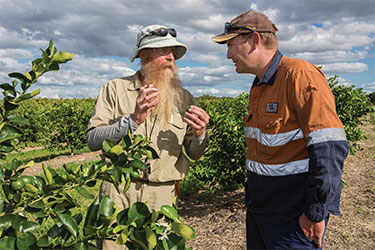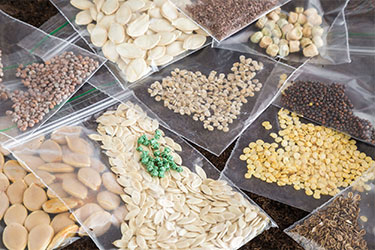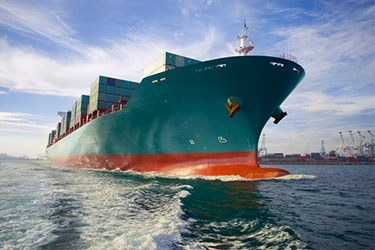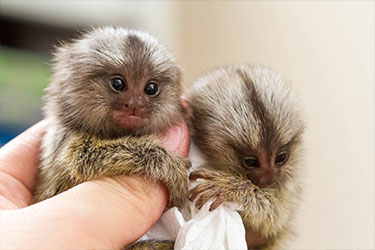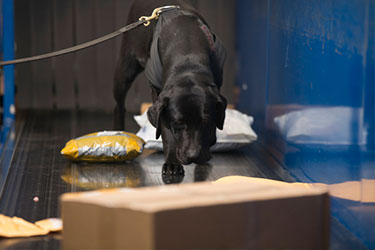Biosecurity is the management of the risk of pests and diseases entering, emerging, establishing or spreading in Australia and causing harm to animals, plants or human health, the economy, the environment and the community.
Four eyes on biosecurity risks thanks to smart glasses
Smart glasses will test whether inspections and audits can be done remotely.
Earlier this year, we began trialling RealWear smart glasses to test whether the technology allows rural tailgate inspections and audits to be effectively conducted remotely.
The department’s head of Biosecurity Implementation, Cathryn Geiger, said the trial is a collaboration with clients and industry, and will help address a range of challenges.
‘We’re testing the concept of using hands-free technology that can livestream inspections,’ Ms Geiger said.
‘One person will wear the smart glasses and conduct a walkthrough of the cargo, while a biosecurity officer views footage from the glasses remotely and provides advice and guidance on potential biosecurity risks.
Continue reading about four eyes on biosecurity risks thanks to smart glasses
‘The use of smart glasses may provide better visibility at inspection sites, improve efficiency, and address increasing trade volumes and the spread of pest and diseases.’
Biosecurity officers often need to travel significant distances to perform their regulatory functions. Using the smart glasses, remote inspections and audits would be more time efficient and allow more officers to be available to provide other inspections for clients.
Industry may benefit through a potential reduction in inspection-related costs, a stronger understanding of biosecurity risks managed through inspections, and the ability to shift resources to other inspection activities.
We ran a successful mock trial in May 2020 to test the technology’s capability. During the trial, the officer watching the livestream could clearly see biosecurity risk material. The smart glasses revealed risks in areas such as twist locks, tynes and dark crevices of containers.
Phase 2 began in late July, to test the connectivity and usability of the remote technology and whether it can be fit for purpose. Future trials will also investigate the technology's use in other areas.
For more information, email Biosecurity2025andBeyond@aff.gov.au
Nominations now open for the Australian Biosecurity Awards
The ABAs expanded categories emphasise the importance of biosecurity education.
The search is on for the next round of biosecurity champions, with nominations now open for round two of the 2020 Australian Biosecurity Awards (ABAs).
Head of biosecurity, Andrew Tongue, said round two included new categories that demonstrate the diversity of biosecurity and the different roles we can all play.
‘Australia has faced some tough challenges this year but maintaining Australia’s biosecurity system has remained a priority,’ Mr Tongue said.
‘Our biosecurity system strengthens our country’s long-term resilience by safeguarding our economy, food supply, unique environment and way of life.
‘It is important to recognise individuals and groups who support our biosecurity and are committed to safeguarding Australia from pests and diseases.
Continue reading about nominations now open for the Australian Biosecurity Awards
Four new award categories have been added for round two—Environmental Biosecurity, Community, Education and the Dr Kim Ritman Award for Science and Innovation.
The Dr Kim Ritman Award for Science and Innovation was created in honour of Dr Ritman’s contributions as Australia’s Chief Plant Protection Officer.
The new categories recognise a wider range of stakeholders and the diverse parts of our biosecurity system. They also emphasise the importance of biosecurity education.
The first round of 2020 ABAs were presented in March, with a range of winners from industry and government. Round two of the ABAs will be presented at the National Biosecurity Forum in November.
If you know a group, individual or organisation that deserves to be recognised for their biosecurity work, nominate them today. Nominations close 2 October 2020.
Australians urged to report unsolicited seeds received in the mail
Imported seeds must adhere to strict biosecurity conditions that help manage pest and disease risks.
Received something seedy in the mail recently? Don't plant it or throw it away – report it.
All Australians are being reminded to be biosecurity aware, following cases of unsolicited seed packets being received through the mail.
Head of Biosecurity Operations, Emily Canning, said imported seeds must adhere to strict biosecurity conditions that help manage pest and disease risks associated with seeds.
‘The department is aware of the cases overseas and we have had a number of reports of unsolicited seeds being received in Australia that are under investigation,’ Ms Canning said.
‘It is an important reminder that we all need to do our part to safeguard Australia from biosecurity pests and diseases.
Continue reading about Australians urged to report unsolicited seeds received in the mail
‘This includes reporting potential biosecurity breaches and following the correct process if you are purchasing seeds from overseas.
‘If you do receive seeds in the mail that you did not purchase, do not plant the seeds or put them in the garbage.
‘Secure the seeds and immediately report it to the department.’
Imported seeds that do not meet biosecurity conditions can threaten our environment, agricultural industries and even backyard gardens. They could also be carrying invasive pests or harmful plant diseases, such as tomato brown rugose fruit virus and cucumber green mottle mosaic virus.
If you are considering purchasing seeds from overseas, check if those seeds are permitted and if there are any import conditions. Import conditions for seeds and other items can be found on the department’s Biosecurity Import Conditions System (BICON).
Detector dogs, x-rays and biosecurity officers are also in place to intercept potential risk items at our international mail centres. The department regularly intercepts seed packets from overseas that are mis-declared as jewellery, gifts, earrings and garden tools.
Report a potential biosecurity breach online or call 1800 798 636.
New COVID-19 screening measures for commercial vessels arriving in Australia
New COVID-19 screening measures will apply to the pre-arrival questionnaire.
Australia is rolling out a new COVID-19 human health assessment process for commercial vessels arriving on our shores.
We are working with the Department of Health and state and territory Chief Human Biosecurity Officers on the new safety measures.
The new process will enhance pre-arrival human health assessments to strengthen Australia’s COVID-19 measures.
The first phase was rolled out in July and introduced pre-arrival questions specifically related to COVID-19 symptoms. This saw a questionnaire sent to vessels to identify illness in their pre-arrival report.
Phase 2 will improve efficiency by incorporating the questionnaire into the existing Maritime Arrivals Reporting System (MARS) pre-arrival report.
Continue reading about new COVID-19 screening measures for commercial vessels arriving in Australia
Vessels that report symptoms consistent with COVID-19 will be assessed by a medically trained Human Biosecurity Officer (HBO), prior to being granted approval to disembark people or discharge cargo in Australia.
We will contact port authorities, Australian Border Force and the Australian Maritime Safety Authority when an HBO advises a vessel may represent a COVID-19 risk and requires additional assessments or measures.
We will continue to engage with industry to support the effective and smooth implementation of this new process.
Learn more about the health assessments for commercial vessels.
Sink your teeth into our Biosecurity Bite videos
Find out how we all play a role in keeping Australia pest and disease free in our Biosecurity Bite videos.
Have you ever wanted to know more about how Australia’s biosecurity system works to protect our agricultural industries and unique natural environment?
Then sink your teeth into our Biosecurity Bite videos! These seven bite-sized, animated videos show how we manage plant pest and disease risks offshore, at the border and onshore in Australia.
Find out the key role biosecurity plays in ensuring safe trade, how the import risk analysis process works, and how biosecurity is everyone’s responsibility. Plant biosecurity is the focus, but the content applies to biosecurity in general.
So grab your popcorn and enjoy taking a bite into biosecurity!
Watch the videos, and for more information email us at plantstakeholders@aff.gov.au.
New VR training tech for production nursery biosecurity
The training tool has unique functionality that allows the user to adjust it to suit their own plant health requirements.
Australia’s nursery production industry can now benefit from an innovative new training tool, which will support an improved, grower-led plant health surveillance system.
The tool—a virtual reality (VR) training module—will provide a fully-immersive, plant protection training experience.
Funded through the Agricultural Competitiveness White Paper, this innovative training solution is being delivered in collaboration with Greenlife Industry Australia (GIA).
GIA’s National Biosecurity Manager, John McDonald, said the module will place the user in a virtual production nursery environment.
‘It will test their ability to implement crop monitoring procedures for key pests. Users will be able to pick up and inspect plants in the virtual environment to identify which pests may be present,’ Mr McDonald said.
Continue reading about new VR training tech for production nursery biosecurity
Infested plant locations are marked using heat maps. The software also allows for the numbers, density and spread of pests to be manipulated over a ‘growing cycle’, providing opportunities to adjust the training based on the user’s expertise.
‘This is a unique function that can’t be replicated in the field,’ Mr McDonald said.
‘Crop monitoring is an essential activity for production nurseries to ensure the health of their crops. These activities play a significant proactive pest detection role in our plant biosecurity system,’ he said.
Growers can contact their state GIA Plant Protection Officer to access the training module or email biosecure@greenlifeindustry.com.au.
Tiger King or dunce: Does our culture popularise owning exotic pets?
Exotic pets desired by Australians include charismatic species such as pygmy marmosets.
With shows like the Netflix series Tiger King popularising keeping exotic animals, it raises the question of why Australians desire to own non-native pets.
The trade in non-native animals is not only an ethical problem — it also poses a dire biosecurity risk. Animals introduced from overseas carry a range of disesases that threaten our agricultual industries and native wildlife.
For this reason, we are currently funding research to better understand whether the average Australian is becoming more interested in having their own exotic pet. If this trend is rising, we also aim to find out how and where these pets are likely to be sourced.
Researchers at the University of Adelaide, supported by the Centre of Invasive Species Solutions (CISS), are looking into the underlying reasons why people want to own non-native pets.
Continue reading about Tiger King or dunce: Does our culture popularise owning exotic pets?
Import enquiries by members of the public are being used to track trends in exotic pet ownership and bolster our defenses against illegal wildlife trade.
Researcher Adam Toomes said that the research findings revealed that a desire to keep an exotic pet has several motivations, including species popularity in the US and threatened status.
Research also revealed a surprising selection of desired pets, including not only charismatic species such as pygmy marmosets, but also notorious invaders such as green iguanas, and species only recently finding themselves in demand such as crocodile skinks.
If desire for exotic species leads Australians to seek such animals, regardless of legality, we not only risk new invasive pests and diseases threating our environment, but we could also contribute to unsustainable and exploitative wildlife trade that decimates fragile species populations across the globe.
However, the silver lining is that the research highlights the potential role of the US trade as an effective predictor for Australian desire, allowing interventions to be put in place on our own borders.
‘Using US trade data, it may be possible to improve our ability to predict future attempted imports of exotic animals,’ Mr Toomes said.
Read the full paper or find out more about CISS’s incursion projects.
Our detector dogs sniff out a range of whisky finds
Our detector dogs play a critical role in beefing up our Biosecurity to protect our agricultral industries.
Our detector dogs continue their pawfectly diligent work, sniffing out a range of ‘whisky’ finds at Australia’s international mail gateway facilities.
Detector dog Tyla responded to a parcel that contained some items which could have posed a terri-frying risk. The parcel contained approximately 40 eggs and was heavily infested with live insects.
Head of Inspections Group Rick Hawe said that imported eggs pose a significant biosecurity risk to Australia.
‘Eggs can carry Newcastle disease and avian influenza. These diseases could seriously harm Australia’s poultry industry and native bird life,’ Mr Hawe said.
‘The insects were also confirmed to be of biosecurity concern.’
Continue reading about our detector dogs sniff out a range of whisky finds
Meanwhile, our biosecurity detector dogs have also beefed up their work, recently snagging a pork-load of items.
Detector dog Velvet identified a parcel that contained an assortment of beef and pork sausages, while Shyla recently found a parcel that was found to contain pork slices and pork sausages.
Earlier this year at the Sydney International Gateway, detector dog Yoomee suspected some fowl play, sniffing out a parcel with over a kilo of retorted chicken feet and 925g of pork buns.
‘Meat presents a range of animal biosecurity threats,’ Mr Hawe said.
‘Pork can carry African swine fever (ASF), which Australia is currently free from. It represents a prominent biosecurity threat to Australia’s pork industry, and could devastate our pork production.
‘Previous testing of pork items intercepted at the border have found traces of ASF, so the risk of this disease approaching through the mail or being brought in by international travellers is real,’ he said.
Finding the meaty parcel was one of Yoomee’s last cases, as he has been enjoying the retired life since May.
Mail items that do not comply with our biosecurity conditions are destroyed or immediately exported.
If you want to avoid wasting money and do your part to safeguard Australia from pests and diseases, be biosecurity aware before you buy goods from overseas.
See the latest Import industry advice notices or Export industry and market access notices.


